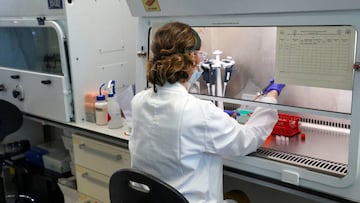First case of Covid-19 reinfection reported in US
Researchers in Nevada have identified a 25-year-old individual who tested positive in April for the coronavirus and again in June with a different strain.

US researchers are reporting the first case of a patient in the country to become reinfected with Covid-19 having fully recovered from the disease. This comes on the back of the first worldwide case of reinfection, reported in Hong Kong.
Patient reinfected with Covid-19
The 25-year-old patient in Nevada had classic Covid-19 symptoms in late March (sore throat, cough, headache, nausea) and tested positive for the coronavirus on 18 April. He then made a full recovery and tested negative twice for Covid-19 in May.
The individual however then began to feel ill once again and tested positive for Covid-19 in June, ending up being admitted to hospital with severe symptoms.
Researchers at the University of Nevada, Reno School of Medicine and the Nevada State Public Health Laboratory who studied the case ruled out the possibility that the second bout of the disease was caused by the original infection, identifying that the viruses in each case were from different strains, with no possibility of having changed so rapidly inside his body in the time between the two bouts of illness. The researchers' study into the individual has not yet been peer reviewed.
"Reinfections are possible"
"This study likely represents a clear example of reinfection... reinfections are possible - which we already knew, because immunity is never 100%," Kristian Anderson, professor of immunology and microbiology at Scripps Research in La Jolla, California, told Reuters.
Related stories
The researchers in the Nevada patient case said that reinfection was likely rare (this is the first case documented in the US, which has had over six million confirmed cases), but that the findings did show exposure to the virus might not provide immunity to everyone.
"We don't know at what frequency reinfections occur and how that might change over time," Anderson said. "Before we have broader studies illuminating these questions, we can't conclude what a single case of reinfection means for longevity and robustness of COVID-19 immunity and relevance for a future vaccine."